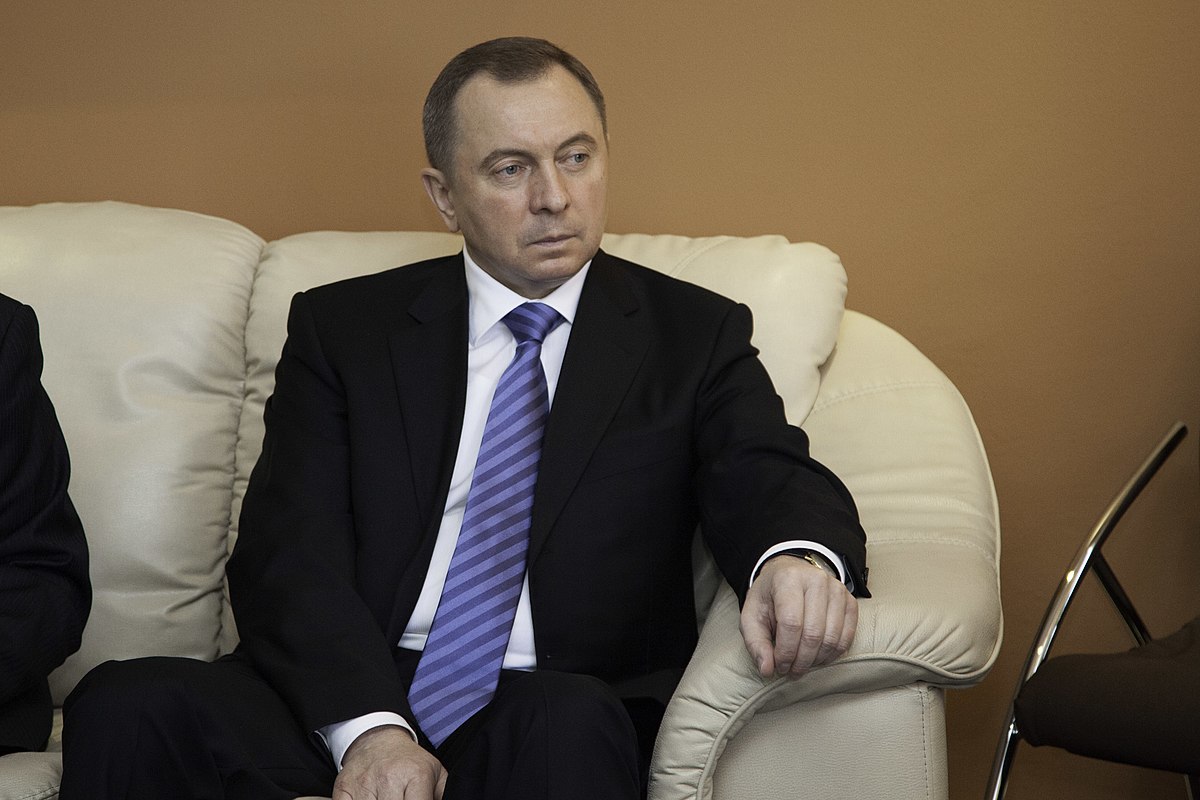Vladimir Makei decided to stand by the Lukashenka regime and I think that he betrayed himself by doing that. The police terror in Belarus and the Russian invasion of Ukraine did not suit him, says Witold Jurasz, Onet.pl’s journalist and former chargé d’affaires of the Republic of Poland to Belarus, in an interview with BiznesAlert.pl.
BiznesAlert.pl: Recently, the world has been informed about the death of Belarus’s Minister of Foreign Affairs. What kind of a man was Vladimir Makei, the head of diplomacy of the Lukashenka regime?
Witold Jurasz: Vladimir Makei was a technocrat who stood out against the background of the Belarusian regime. By the standards of Belarus, he was an open man, he certainly did not belong to the hard-liner faction. But he was no liberal either. I think he was a supporter of the evolution of Belarus towards soft authoritarianism, not hard dictatorship. And that’s where the problem comes in. I believe that an evolution in this direction was desirable from Poland’s point of view, because after the thaw period in Belarus there was a revival of the civic society. This occurred not during the period of repression, but after the thawing of the system. Therefore, if our goal was to thaw the Belarusian system, Vladimir Makei was the right man for it. I must add that this is a bone of contention between me and the majority of the Polish community that deals with the East, as they treat the „thawing period” as a ruse, not an opportunity.
Makei was a relatively pro-Western man, but not in the sense that he wanted to return Belarus to the West, because this was never possible under Lukashenko. He wanted the regime to have a Western vector in its policy. I believe that this was in our interest, because it created a situation in which Belarus was not doomed to be in Moscow’s grip and to having an Eastern vector only. Thanks to this Russia would not be able to subjugate it completely. Many people who deal with the East say that it was an illusion and there was no such a policy. But the death of the minister means only hard-liners remain in Lukashenka’s circle. I don’t think that’s good news for us. The problem is that the alternative to the dilatory Belarus, which is known to be closer to the East, but at the same time retains some kind of independence, is a Belarus, which does not preserve it and takes part in the assault on Ukraine. I am surprised that there are people who do not understand this.
You are talking about Vladimir Makei’s desire for soft authoritarianism, but over the years Belarus has become a hard dictatorship, increasingly dependent on Russian influence. Could this discrepancy have anything to do with his death?
Makei decided to stand by the regime and I think that in this way he betrayed himself. His death may have been caused by stress from recent events. The police terror in Belarus and the Russian invasion of Ukraine did not suit him.
Every day Makei spent his time among artists, because his wife was a lot younger than him and was an actress. So he was in touch with an elite, and that also affected him. An interesting feature in Makei’s image is the fact that his son from his first marriage, who works in the Ministry of Foreign Affairs, followed a regular career path, from the lowest position. His father didn’t get him a job as an ambassador, and I think that shows what a man Makei was. Interestingly, the minister’s son left his job after the events of 2020 just like many people from the Foreign Ministry, who walked out on their jobs as part of a protest. In this case, he also challenged his father.
After all these events, I think that his heart simply could not withstand a large dose of stress. There are no inaccuracies or ambiguities about the circumstances of Makei’s death, so as long as no specific information about the suspicious circumstances of his death emerges, all conspiracy theories are, in my opinion, nothing short of a myth.
What is the significance of Makei’s death from the perspective of relations with Belarus? What can we expect from his successor?
I don’t see anyone who would hold the same views as Makei. There are several candidates, but to be honest, none of them could hold a candle to him. Makei was a person to whom you could come and talk about different ideas, and there was a certainty that he would convey the idea to Lukashenka. Now there will be no way to talk to anyone. I don’t see a person like that. I don’t see anyone in the regime that we as the West can talk to. Of course, it can be said that nothing came out of the conversations with Makei, but at least there was someone with whom it was possible, even if not today, then in a year or two, to talk.
Belarus is at a point where it has three possibilities. It can be absorbed by Russia, and this will mean the end of its existence. There may be a revolution. The only question is whether this will not lead to the first option. The third possibility is evolution. It may happen, but „after Lukashenka”, not during his reign.
How did Belarusians react to the death of the minister?
The opposition, of course, generally does not mourn Makei. At the same time, we could say that according to some people, the fact that Makei was always loyal to Lukashenka, writes him off, while others remember that in the end, e.g. Caucescu was toppled by his proteges.
What is Belarus today?
The Polish Institute of National Remembrance once organized exhibitions with portraits of officers of the secret services of the People’s Republic of Poland. The photos of the officers from before the 70s depicted, if you can put it that way, stale faces, while in the pictures of the officers from the 1970s and 80s you could already see – not always, of course, but often – faces typical of the intelligentsia. We can say that the evolution of these faces symbolized in some way the evolution of the system. From a system where nails were ripped out and people were murdered, to one where, of course, people were also killed, but much more often they were detained for 24 hours. Just imagine 1989 and the change of the system. It was possible, when security was driven by men with mustaches. It is difficult to imagine the Round Table talks in which the secret services are formed by specialists in shooting and pulling nails with experience in the NKVD. The evolution of the Belarusian system is that there are fewer intelligent faces, but there are more and more stale ones.
Several of them could be seen at Makei’s funeral…
That’s right. I had the impression that he was becoming less and less suited to his surroundings. Even in terms of how he looked.
I read somewhere that Lukashenka’s presence at this ceremony was surprising. Why?
Lukashenka rarely attend funerals. So this is really an exceptional situation. In one of the videos, you can see that he has tears in his eyes. No wonder Makei was loyal. The loyalty of the specialists in clubbing people is not surprising. But can Lukashenka be sure of their loyalty? Perhaps it is that he himself knows that Makei was loyal „in spite of everything.”
Interview by Jędrzej Stachura









